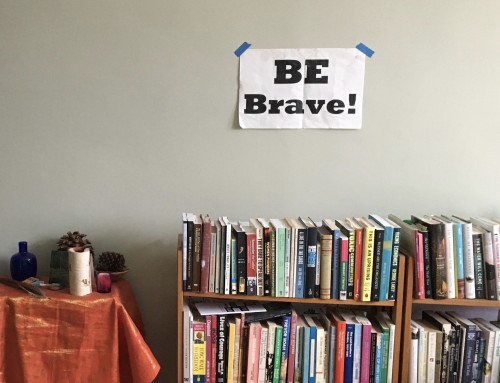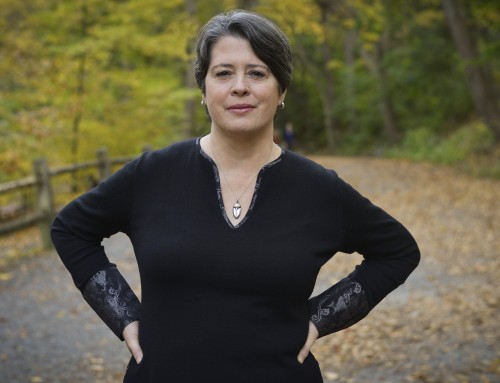I’m not sure who is still out there reading this, but I’m going to try to use this post for discernment feedback. As I’ve written before, I’m trying to figure out what work to do next. There is one idea for a book that has kept coming back to me over the years, so I’m going to post a few paragraphs below and see what thoughts they evoke. The general idea would be a book length work called The Wisdom to Know the Difference, based on many personal interviews and covering issues ranging from the individual (like birth and death) to the societal/global (like poverty and the environment). It might start something like this:
God grant me
Serenity to accept the things I cannot change
Courage to change the things I can change,
And Wisdom to know the differenceI started contemplating The Serenity Prayer while I was pregnant with my first child. On the one hand, I realized that I could not control the miracle growing inside me. From the baby’s health to the timing of labor, I was going to need the serenity to accept that I was not completely in charge. On the other hand, I understood that I had unprecedented control over someone else’s life, and I was going to need courage to face this daunting responsibility. One of the first challenges came when my pregnancy went post-term, and along with my doctor, I needed the wisdom to know how long to wait patiently and when to intervene with labor inducing drugs. Talking to other mothers, I noticed how our personalities and our childbirth philosophies influenced where we each drew the line between accepting and acting, challenging me to consider how I drew the line myself.
The Serenity Prayer continued to hold special meaning for me as my children grew and I needed to insist on boundaries and car seats. On the one hand, what I did as a parent was critically important to their safety and development. On the other hand, I felt powerless to make my daughter forgive her brother, let alone guarantee her protection in a world inhabited by drunk drivers and terrorists. As my aunt, my uncle, and finally my mother approached the end of their lives, I faced new questions about the ethical relationship between action and acceptance and the dance between fighting for life and accepting the inevitability of death. As I sat with my mother during her last hours, I was reminded of the hours waiting for my daughter’s birth, hoping for the wisdom to know what to do and how to just be.
What the Serenity Prayer calls “The Wisdom to Know the Difference” is central to my definition of a well-lived life. We waste energy when we rail against things that can’t be changed, and we waste grief when we put up with what we shouldn’t, not just in personal matters like birth and death, but in societal concerns, like poverty, injustice, and war. In fact the original Serenity Prayer was written in the plural “we,” and it’s author Reinhold Neibur was concerned with racism and anti-Semitism at least as much as with individual spiritual concerns. The individual wording made famous by Alcoholics Anonymous in some ways robs the prayer of its bigger challenge, to see the relationship between my individual actions and the wider world around me.
There are many more ideas, but that’s a taste. What do you all think?




I like it as a start. I guess one implied path for part of it would be what happens when people DON’T have that wisdom to know the difference, and I’m sure you’ll have no trouble finding examples of that. (I guess they are examples of imperfect serenity?) Though of course you may want to focus on the positive examples — the ones where your subjects had — or found — the wisdom.
I love it and want to read more.
I very much enjoy reading your blog, I find myself wishing very much that your first book would be published so that I can read more. I enjoy your insights, your ability to put your finger on exactly what in a situation is disturbing to you (pool situation) or even what you find pleasing. What a gift to have that ability to pay attention and then communicate it in a way that becomes personal to other people. I think your idea would make a wonderful book, especially as a parent struggles with when to intervene in a child’s life and when to let go and let it run it’s course.
I love it. This is something that I, as a control freak who is about to become a mother, struggle with regularly, and it’s one of the central things I find so wonderful about your blog. Knowing the difference is so hard – and navigating the line between laziness/fear/apathy and healthy resignation/acceptance is a fascinating life topic.
And I’m going into labor next week, so I love that you just reminded me of the Serenity Prayer. I think it may be a great comfort to me as I anticipate the process. Thank you.
Thank you, all. And best wishes to the stute fish! I gave myself a “retreat” day before giving birth to my daughter. I just walked in the woods and wrote in my journal. It was a great help, even though I did end up having to wait a few more weeks.
I am a frequent reader/lurker. This book would definitely be one on my reading list.
I also hope your first book gets published.
BTW, the yahoo group from my town (ann arbor,mi) is passing around your brain, child article with great fanfare.
best to you
Eileen,
I’ve been thinking about this. I agree with the other commenters about the insightfulness of your blog and the worth of this particular wisdom piece. However. I think you would need some kind of narrative peg or structure to hang this on, because “wisdom” is abstract, and a bit earnest sounding. So I almost think you might need something to undercut that or lighten it. Would you go with the motherhood angle? The Quaker angle?
Unfortunately the Serenity Prayer, profound though it is, makes people think of mugs and posters, and not Reinhold Niebuhr. More’s the pity. No one can help these associations. I don’t know what you can do about that other than address it right up front. Maybe you can take on the task of rehabilitating the prayer, and placing it in the politically charged context it’s meant to be in?
Thanks everyone for your thoughts. Lauren, your comments were particularly timely as I had just been discussing with a writer/mother friend of mine (Miriam Peskowitz who blogs at http://www.playgroundrevolution.com) the difficultly but importance of writing about complex ideas in a way that they won’t be too abstract for a wide audience. Neither of us likes the idea of “dumbing things down” but we do like compelling writing. I just started What God Wants, by Neal Donald Walsch, and although I haven’t read far enough yet to know if I agree with him, he certainly grabbed my attention on the first page. One of my struggles is that I think we live in a culture where things tend to get oversimplified, so I don’t want to do that in my writing. On the other hand, simple is easier to promote, a part of being a writer I have to work on. Anyway, thanks. It’s more food for thought.
Hi, Eileen,
Enjoying your blog.
The Serenity Prayer is a vital part of my prayer life. I recite it and other prayers many times all during the day. It has taken on deeper, more powerful, and more useful meaning. This is how I live with joy through and in spite of the pain of alienation of my children from me. It’s how I get through this literal reconstruction of my life at almost 50.
In AA, we use both the “I” and the “We” versions.
The prayer’s origin with Niebuhr is not certain. Niebuhr himself admitted as much. There are practically identical writings or ideas as early as the 5th century A.D. See http://www.aahistory.com/prayer.html.
Niebuhr wrote in 1967,
“I must confess my ironic embarrassment as I lived through my depressions, which had the uniform characteristic of an anxious preoccupation with real or imagined future perils. The embarrassment, particularly, was occasioned by the incessant correspondence about a prayer I had composed years before, which the old Federal Council of Churches had used and which later was printed on small cards to give to soldiers. Subsequently Alcoholics Anonymous adopted it as its official prayer. The prayer reads: ‘God, give us grace to accept with serenity the things that cannot be changed, courage to change the things that should be changed, and the wisdom to distinguish the one from the other.’
“Many friendly and inquiring correspondents asked for the original inspiration of the prayer, whether I was really its author, or whether it had been Francis of Assisi, or even an admiral who had used it in a shipboard worship service. I received about two such letters a week, and every answer to an inquiring correspondent embarrassed me because I knew that my present state of anxiety defied the petition of this prayer. I confessed my embarrassment to our family physician, who had a sense of humor touched with gentle cynicism. ‘Don’t worry,’ he said, ‘Doctors and preachers are not expected to practice what they preach.’ I had to be content with this minimal consolation.” See http://www.religion-online.org/showarticle.asp?title=1446.
In AA, the focus of the AA philosophy of recovery and living is on what we call The Three Legacies: Unity, Service, Recovery. We find cannot recover or live absent unity with and service to others inside and outside the AA society.
Our book, _Twelve_Steps_and_Twelve_Traditions_, uses the singular version at the end of the chapter on Step Three, “Made a decision to turn our will and our lives over to the care of God _as_we_understood_Him.” We have another prayer associated with Step Three, “God, I offer myself to Thee–to buld with me and to do with me as Thou wilt. Relieve me of the bondage of self, that I may better do Thy will. Take away my difficulties, that victory over them may bear witness to those I would help of Thy Power, Thy Love, and Thy Way of life. May I do Thy will always!”
Having first admitted that we were powerlessness over alcohol and our lives were unmanageable, then coming to a belief that a higher power could restore our sanity, with the Third Step we turn ourselves completely over to God in order to be ready to do the rest of the work of the remaining Steps through which we gain spiritual awakening and become better and more useful members of society.
I have survived and thrived beyond desparate and hopeless addictions and other devastating life experiences by submitting to the idea of completely letting go of control of everything and everyone but my own thougths and actions. I fall short everyday of whatever I imagine is the “perfect” practice of that idea. I believe the Wisdom comes from practice and learning (learning from others’ experiences too.)
As in everything, I have to avoid indulging too much in the desire for perfect understanding of The Serenity Prayer. There are few things in which I’m capable of achieving perfection. I believe that The Serenity Prayer, being a prayer of petition, is a request to the Creator to be given the qualities of humility that allow us to be more loving and useful to the Great Spirit (God, fellow human beings, all beings). The Great Spirit includes those we would see as enemies.
I can’t imagine living without The Serenity Prayer today.
By the way, I can’t speak for AA. I speak only from my experience in AA. AA speaks for itself. See http://www.aa.org.
Have a good day!
Jim